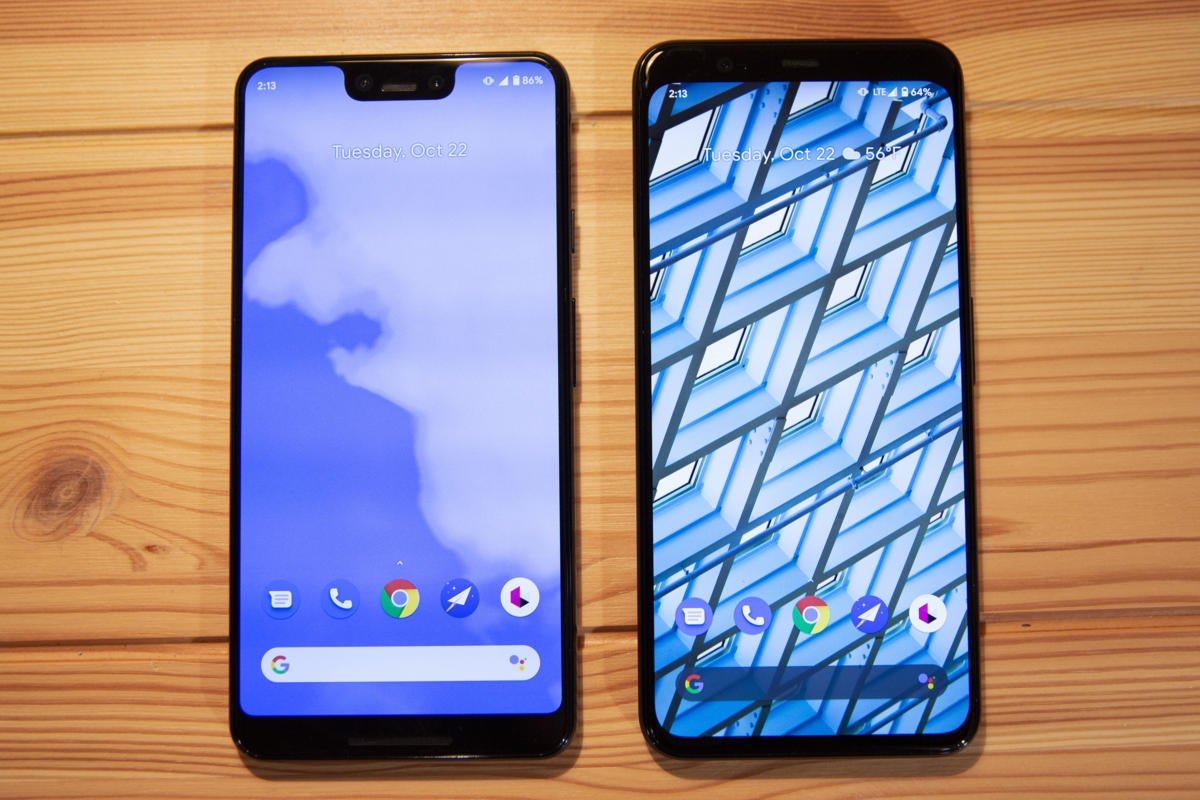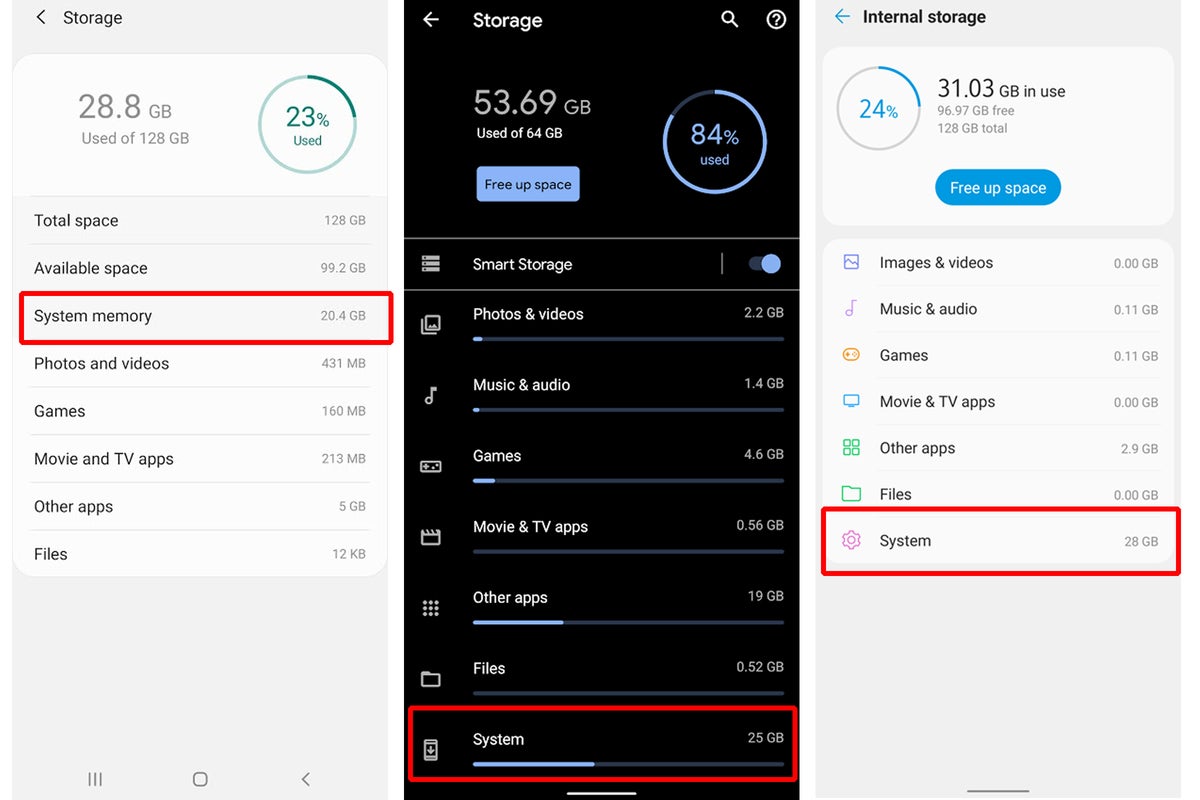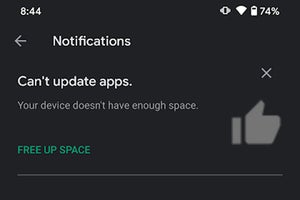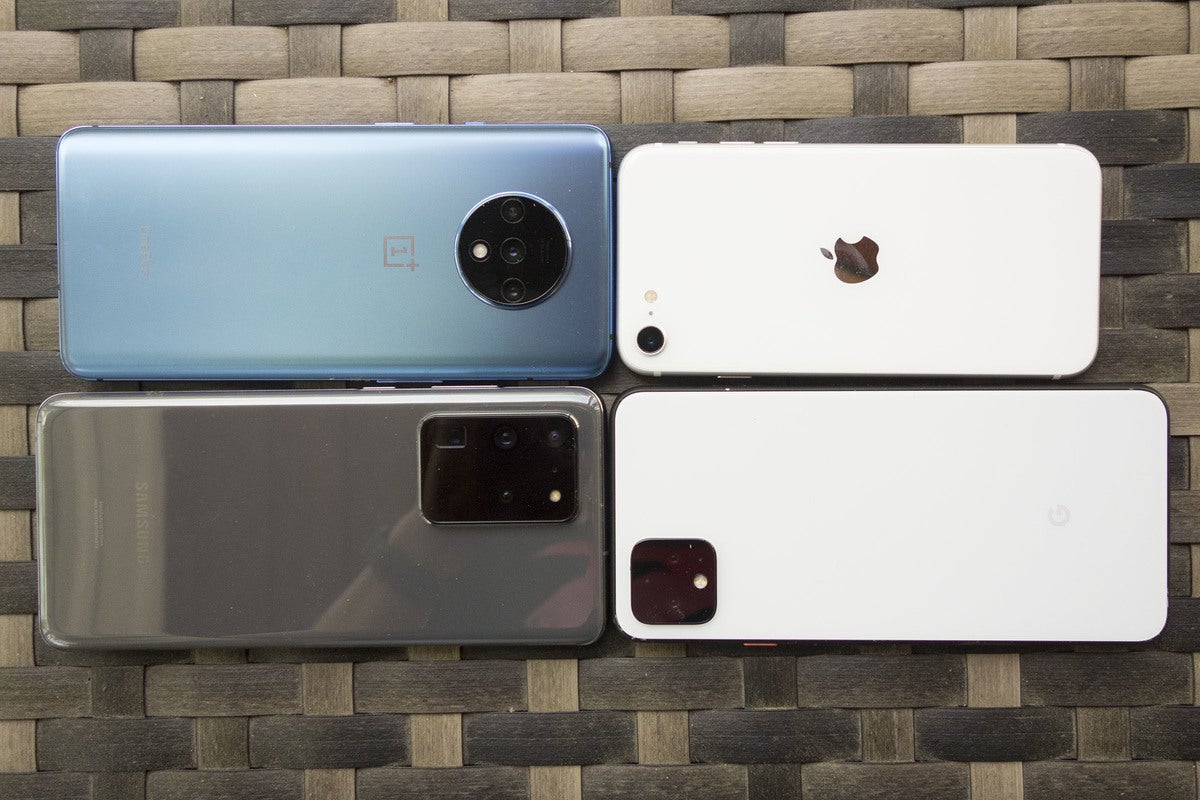Anyone shopping for a new Android phone right now is surely looking at camera, screen size, design, and price, but another key feature needs extra attention: storage.
You might think that space concerns have gone the way of the dinosaur, along with 16GB tiers. An examination of your phone’s settings will likely tell a different story.
I first noticed it on my Pixel 4, when I had to delete a few apps because I didn’t have enough space for Play Store updates. I checked the storage tab: 2.7GB of photos, 1.4GB of music, 6.6GB of games, 25GB for 170 apps, and half a gig for assorted files.
I finally found the problem: 25GB for system files.
 Christopher Hebert/IDG
Christopher Hebert/IDG
The Google Pixel 4 XL (right) uses a lot more space for system files than the Pixel 3 XL.
I quickly realized it’s an issue on nearly every recent Android phone. Over the course of the past few Android upgrades, system storage has taken up more space. If you have an Android 10 phone with 64GB of storage, look at the space sucked up by system files on these Android phones--and do the math:
LG V60: 28GB
OnePlus 7T: 27GB
Pixel 4 XL: 25GB
Galaxy S20 Ultra: 20.4GB
OnePlus 8 Pro: 20GB
Galaxy S10: 19GB
Pixel 3a: 15GB
For some perspective, that’s more space for system files than a Windows 10 PC requires. On a 64GB phone, system files could eat up 30 percent of your allotted space. Add some bloatware, a few games, your favorite apps, and a 4K movie or two, and you’re pushing the limits of what your phone can hold. Clear cache and restart all you want, that space isn’t coming back.
Will work for storage
You’d think at least Google’s own phone would handle things better than the rest of the Android community, but as you can see above, Pixels are some of the worst offenders. As phone storage has increased, so has the system space allotment. It’s gotten to the point where we’re once again questioning whether the base model offers enough space for all of our stuff.
The crux of the issue seems to be with hardware abstraction (Project Treble) and A/B partition selection (Seamless Updates). Those are the features that help your phone update faster by segmenting important system partitions like boot and vendor. That way phones can receive important updates faster, and install and reboot quickly as they arrive.
 IDG
IDG
The System files on Android phones could take up as much as 30 percent of your available storage.
Those features require more space. Because phones aren’t taxed for storage as much as they once were, Google doesn’t mind eating up a bunch of it to support them. (That could be why the Samsung phones here use a smaller amount of system storage—they don’t support Seamless Updates. Though 20GB is still a lot of space.) But that’s hardly reassuring when you get a message telling you to clear out some space before the Play Store will update your apps.
System overload
If you’re rolling your eyes and thinking that a lot of Android phones come with 128GB of storage so it’s no big deal, consider that the Pixel 4 still starts at 64GB, as do a lot of other phones still sold in carrier stores. Plus, that extra space doesn’t come free.
 IDG
IDG
You don't need to fill your 64GB Android phone with that much before you'll see this message.
For example, several of Samsung’s new lower-cost A-Series phones start at 32GB of storage, with the entry-level A01 bringing just 16GB. Because 16GB obviously isn’t enough space for the S20’s 20GB of system files, Samsung will need to pare down that number significantly. The question remains: If One UI 2 on the A01 presumably only needs about 5GB of space to run, why does it need many times that on more spacious Galaxy phones? We shouldn’t have to worry about losing 20 or 30 percent of our storage before we install a single app.
 Michael Simon/IDG
Michael Simon/IDG
If the iPhone SE doesn’t need 20-30GB of space for the system, why do these Android phones?
Just because your phone can handle large system files doesn’t mean it should. Apple critics may point fingers at the iPhone’s 64GB starting tier and lack of an expandable memory slot, but the system files take up only 5.3GB of space on the iPhone SE and 6GB of space on the iPhone 11. That’s a quarter of what the Samsung Galaxy S20 uses and a fifth of what the Google Pixel 4 uses. Updates arrive just as fast and install just as quickly on the iPhone 11 as they do on the Pixel 4.
If Apple can build a modern operating system that uses a small fraction of space of your internal storage, then Google should be able to as well. But until that day arrives, make sure you have enough space on your phone, even it means spending a little more for 128GB.
"Android" - Google News
June 10, 2020 at 05:00PM
https://ift.tt/2UtQgRO
Why 64GB isn’t enough space for Android phones anymore - PCWorld
"Android" - Google News
https://ift.tt/336ZsND
https://ift.tt/2KSW0PQ
Bagikan Berita Ini














0 Response to "Why 64GB isn’t enough space for Android phones anymore - PCWorld"
Post a Comment